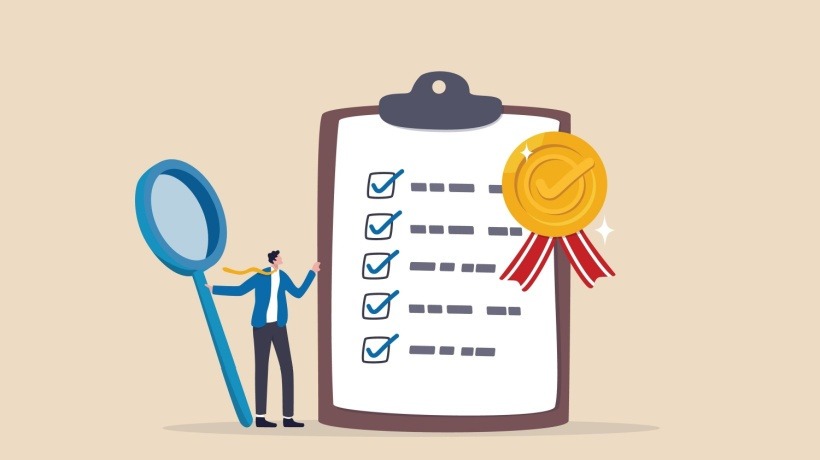
This article extensively discusses the importance of an effective monitoring and evaluation system to ensure that Nigerian schools adhere to quality standards and best practices required to compete with other educational institutions across the world. It also highlights strategies to strengthen the evaluation process and calls on government and stakeholders to invest in the system by sponsoring educators for educational conferences, regulating school inspections, and utilizing strategic partnerships to achieve successful outcomes.
The Federal Education Quality Assurance Scheme defines quality assurance as a process responsible for providing the necessary guidance and support to schools for improving student learning outcomes. According to the US Guiding Principles for Policy Development, quality assurance is crucial.
Education Quality Assurance, as defined by Law Insider, involves evaluation measures adopted by schools and external agencies to maintain an approved educational system, advocate for appropriate learners’ development, and ensure the credibility of the system.
The Universal Basic Education Commission has tasked the Department of Quality Assurance with ensuring standard basic education through evaluating and monitoring minimum standards for teaching and learning processes in basic education institutions. The Lagos State Office of Quality Assistance, established through an executive order on September 13, 2023, defines its mission as enhancing standard quality education in institutions below the tertiary level. According to Okebukola (2023), agencies established for quality assurance in the Nigerian education system, including the National Primary Education Commission (NPEC), State Universal Basic Education, and Local Government Education Authority, were mandated to ensure the quality of processes and services in the system.
It is crucial to emphasize that the Nigerian education system requires a complete restructuring. According to the Teacher Registration Council of Nigeria in Punch Newspaper (2023), over 70 percent of teachers in private schools in South West states are unqualified to teach. This implies that they lack the necessary training to be in the classroom since their academic qualifications do not enable them to register with the council. This percentage is shocking in a country where many graduates turn to teaching when there are no job opportunities in their field of study. This raises the question: How can they be expected to teach effectively when they lack a comprehensive understanding of teaching methodology, effective classroom management, student assessment and evaluation, and other necessary knowledge for professional work?
It is also important to note that the deteriorating condition of the system has led to an aggressive increase in the number of out-of-school children, which according to UNICEF is over 10 million. Various factors, such as economic barriers, insurgency, and discrimination, among others, are responsible for this increasing number, particularly in the Northern part of the country. In addition, the government’s unwillingness to fund the sector also contributes to the declining state, resulting in the ineffectiveness of the quality assurance team.
To ensure that Nigeria achieves its goal of improving the education system, it is important to empower all regulatory bodies, such as SUBEB and ministries of education, to enforce quality standards without compromise. There should also be comprehensive training introduced for teachers’ professional growth, focusing on their pedagogical skills and the use of technology to facilitate effective teaching-learning processes.
The government also needs to heavily invest in the sector by increasing the budgetary allocation for adequate laboratories, adjusting teachers’ remuneration to make the profession attractive, and providing classroom and technological resources. Partnerships between the private and public sectors should be encouraged for strong investment in the system because education also contributes to the future of a country.
The effective implementation of these strategies by both the government and relevant stakeholders is paramount in elevating the quality assurance practices in Nigeria. This is essential for achieving significant results with a positive impact on the country.
REFERENCES
Law Insider – Education Quality Assurance Definition
https://www.lawinsider.com/dictionary/education-quality-assurance
Office of Education Quality Assurance, Lagos State
https://oeaqalagos.com
The Punch (May 4, 2023). Over 70% of private school teachers in the South-West are not qualified.
Universal Basic Education Commission : Quality Assurance
__________________________
Samuel Tolulope Alimi is the founder and lead scholar at English TV, an online platform dedicated to teaching the English language on various social media platforms. He earned a BA (Ed) from the prestigious Olabisi Onabanjo University, Ogun State, where he majored in English and Education.
As a Grammar Columnist at Peoples Daily newspaper, one of the foremost and trusted national newspapers, he writes about Nigerian English on Page 23 of every Saturday’s publication, with his column titled “Common Errors in English with Samuel Alimi.” His writings have attracted considerable readership across several states, with over 30 detailed articles published.
Samuel is a goal-oriented ambassador of Scholarship IQ, promoting its mission to build the world’s largest African student directory in two local governments in Nasarawa State, Nigeria. He has also gained hands-on experience in ghostwriting autobiographies, community service, and research through his internship at SO41 Educational Consultancy, Ogun State.
LinkedIn: Samuel Tolulope Alimi
samueltolulopealimi@gmail.com





















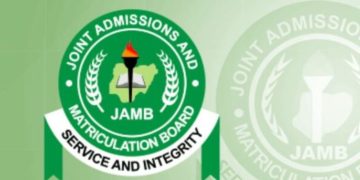
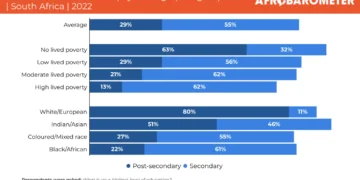

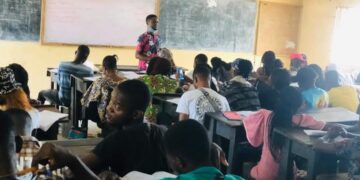
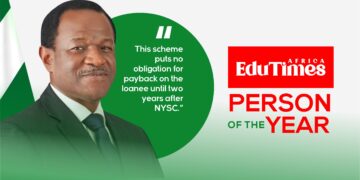






































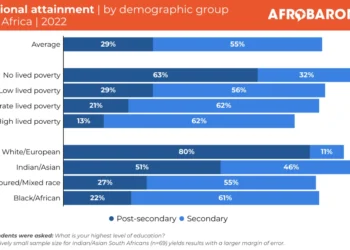

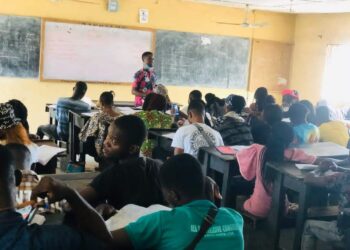

 EduTimes Africa, a product of Education Times Africa, is a magazine publication that aims to lend its support to close the yawning gap in Africa's educational development.
EduTimes Africa, a product of Education Times Africa, is a magazine publication that aims to lend its support to close the yawning gap in Africa's educational development.

